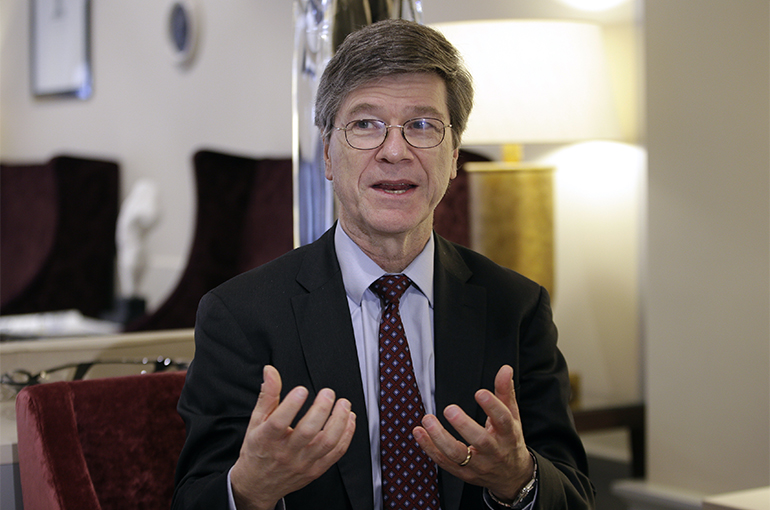 Jeffrey Sachs Says Trump Tariffs Would Harm US, Global Economies
Jeffrey Sachs Says Trump Tariffs Would Harm US, Global Economies(Yicai) Dec. 20 -- The American and global economies would be harmed by the high import tariffs that US President-elect Donald Trump has threatened, according to renowned economist Jeffrey Sachs.
“If Trump implements his high-tariff policy as he has declared, it will weaken the US economy and damage the world economy,” Sachs said in a recent interview with Yicai.
“I am hoping that there is more threat than reality,” the Columbia University professor and president of the United Nations Sustainable Development Solutions Network said. “But it is absolutely possible that Trump follows through on his campaign promises, in which case the economic fallout will be highly negative, with the adverse consequences growing over time.
“Trump likes to make threats in order to negotiate, but he is also a true protectionist,” Sachs pointed out, adding that protectionist trade tariffs benefit narrow economic groups, though the losses outweigh the benefits and are felt throughout the whole economy.
“A few US companies will benefit from a reduction of overseas competition, but the entire productive sector will be less efficient and less internationally competitive, and consumers will lose broadly,” he said.
Asked about the first Trump administration’s commitment to revive US manufacturing, Sachs said the long-term decline in the share of manufacturing employment is due far more to technology -- automation, including artificial intelligence, robotics, and other information-based systems -- than it is to trade. This trend is evident in almost all high-income countries, regardless of whether they have trade deficits or surpluses, Sachs noted.
Trump has threatened to impose tariffs of 100 percent on the BRICS member countries if they create a currency to rival the US dollar. The BRICS was set up in 2009 by Brazil, Russia, India, and China. South Africa joined in 2010, and the group added Egypt, Ethiopia, Iran, and the United Arab Emirates this year. The expanded group is often referred to as the BRICS+.
“Threats won’t work,” Sachs said. “The mere threat [of this] will be a signal to the BRICS that they need to proceed to create a non-dollar payments system.” The dollar’s role will "diminish markedly” over the next 10 years because of digital central bank currencies and policies, he added.
Discussing China’s so-called overcapacity, Sachs said the country has a high capacity, not an overcapacity. “That capacity should be exported around the world since the entire world needs fifth-generation networks, electric vehicles, renewable energy, efficient batteries, fast rail, and other technologies in which China has a large capacity,” he said.
Finally, on the long-term implication of Trump’s trade policy, Sachs outlined three basic scenarios. “The first is that the US makes a course correction and abides by the WTO [World Trade Organization], the second is that the US becomes protectionist, and the EU joins the US in protectionism, and the third is that the EU remains part of the open trading system, in which case the US is increasingly isolated.”
If the second scenario unfolds, the Western world and the BRICS+ will form two distinct trading blocs at great cost to the global economy and at much risk of future conflict, Sachs noted. “I am, of course, hoping for the first, but the second or third is the more likely.”
Editor: Futura Costaglione